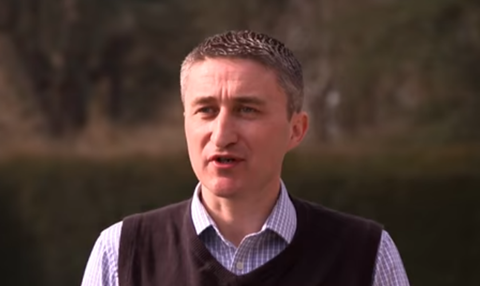Leaders of the National Farmers Union (NFU) have called for greater awareness of new technology available to help farms maximise margins, uphold the UK’s reputation for quality produce and reduce carbon emissions.

Commenting at the launch of new individual animal insights software, Philip Hambling, head of food and farming, and John Royle, chief livestock adviser, highlighted that now is the right time for farmers to review the latest cost-effective tools available to help farmers prosper in increasingly tough conditions, as well as contribute to the NFU’s target of net-zero greenhouse gas emissions from agriculture by 2040.
“We have a perfect storm,” said Philip Hambling. “The pressures of a recession, ongoing Covid-19 risk and restrictions, a looming international trade headache, a volatile funding landscape requiring greater farm independence, not to mention the immediate need to accelerate reduction of our industry’s carbon footprint. Controlling everything you can on farm – particularly through acting on insights from your data – is a must.”
“While we are twenty years away from our ambitious net-zero goal, the clock is ticking. There are some excellent data-led tools that can help us on the journey to both greater profitability and lower emissions – a win-win.”
The emphasis placed on technology coincides with AgriWebb’s launch of new individual animal insights.
Allowing a review of over 40 different animal traits, it provides a set of interactive dashboards to help British livestock farmers understand patterns and trends in their farming activities and livestock in order to identify over or underperformers. This helps to answer questions ranging from which vendor rears the best sheep, to which of your cattle tend to grow and finish the fastest? Finding these common traits will help improve and replicate herd or flock performance, according to the NFU.
As cited by the NFU, by focusing on productivity and the physical performance of a business, you can also reduce your carbon footprint. For example, by selecting to increase cattle lifetime growth rate by + 5%, farmers can save up to 0.3kg/CO2 per kg of meat produced. Or by improving by achieving +0.1 lamb per ewe a year, this could reduce your carbon footprint by 0.74kg/CO2 per kg of meat produced.
John Royle, who recently championed an embrace of technology, added: “Farm management technology has come into an exciting new age in the past 12 months with fresh players emerging. Not only are technologies that help you to build your business getting better and better, there is a growing supply chain requirement. Customers are asking for more information about their meat, and increasingly, the environmental sustainability of production. Tracking the heritage, feed and treatments of animals over their lifetime is imperative in proving the responsibility taken in rearing British produce and in pursuit of improved efficiency.
“Our recent assessment of the top five areas of productivity highlighted the opportunity to use technology. It recommended collecting key farm management data to report on, conducting farm carbon audits, and tracking better health and genetics.”
Phil Hambling added: “While we are twenty years away from our ambitious net-zero goal, the clock is ticking. There are some excellent data-led tools that can help us on the journey to both greater profitability and lower emissions – a win-win.”
This story was originally published on a previous version of the Meat Management website and so there may be some missing images and formatting issues.












